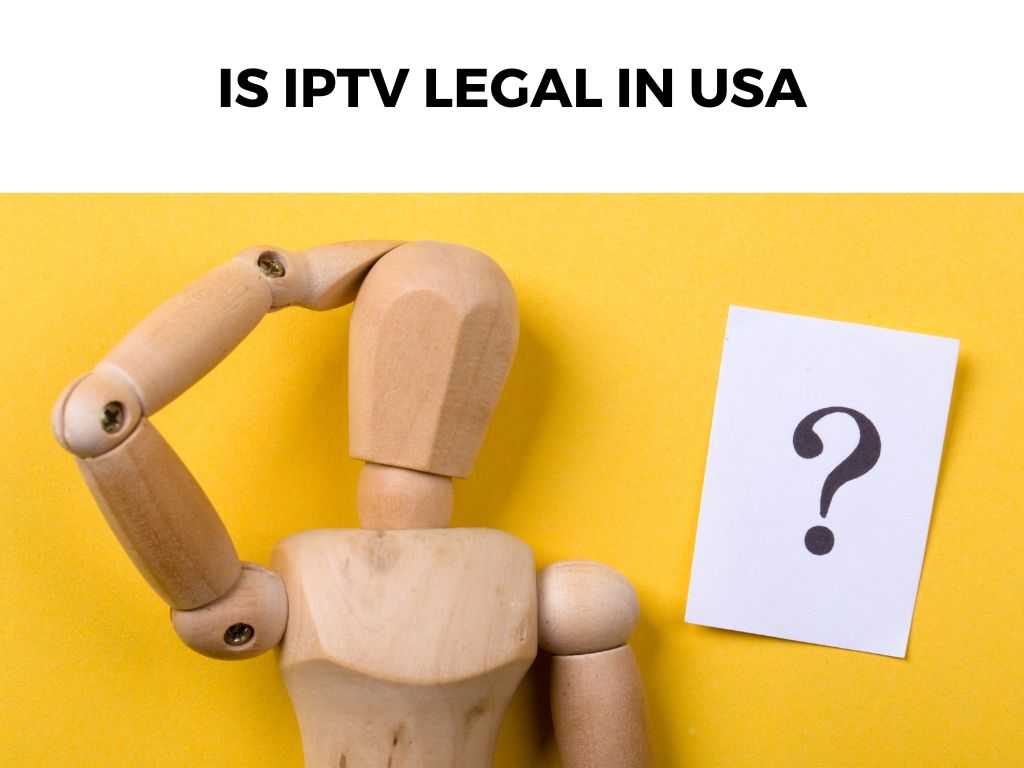
The draw to IPTV is the increased convenience and accessibility it provides to consumers. However, due to its internet-based nature, it has also become a hotbed for potential copyright infringement, which leads us to the question of legality.
TL;DR: The legality of IPTV in the USA hinges upon the legality of the content being streamed. If the content is copyrighted and not distributed with proper authorization from the rights holder, the IPTV service is illegal.
Scroll down to get a detailed answer
However, if the content is publicly available or appropriately licensed, the IPTV service is legal.
Table of Contents
Legality of IPTV in the USA
In the United States, the legality of IPTV primarily comes down to the content it provides and how that content is sourced. Here are the key considerations to keep in mind:
- Licensed content: If an IPTV service pays for the rights to distribute content and follows all copyright laws, then that IPTV service is legal. Examples of these legal IPTV services include Netflix, Hulu, and Amazon Prime Video. These companies have agreements in place with content creators to stream their shows and movies.
- Public domain content: Content in the public domain is free to distribute and consume, so any IPTV service offering this type of content would be legal.
- Unlicensed content: Conversely, if the content is copyrighted and the IPTV service does not have the appropriate licenses to distribute that content, then the IPTV service is illegal. Many illegal IPTV services will offer thousands of channels for a suspiciously low price, which is often a red flag.
Note: As a user, you have a responsibility to ensure the IPTV service you use respects copyright laws. Using unlicensed IPTV services can potentially lead to legal troubles. To avoid running into illegal IPTV services, here are a few things to look out for: I recommend always researching any IPTV service before signing up. Legitimate providers will be transparent about their offerings and licensing agreements. Understanding the legal implications of using IPTV services is crucial. While the law often targets providers of illegal content, in some cases, users can also face consequences. While authorities primarily go after illegal IPTV service providers, it’s not unheard of for users to face penalties, especially if they are knowingly consuming pirated content. I recommend staying on the right side of the law and subscribing only to legitimate, licensed IPTV services to avoid any potential legal issues. The use of Virtual Private Networks (VPNs) can provide an added layer of privacy when streaming content online, including through IPTV services. A VPN can help protect your data from being intercepted and keep your online activities more private. However, it’s worth noting that the use of a VPN does not make streaming pirated content legal. The legality of the content is still determined by whether or not the provider has the proper licenses to distribute it. Therefore, while a VPN can provide added privacy, it should not be used as a means to access or distribute copyrighted material illegally. Internet Service Providers (ISPs) also play a role in IPTV regulation. In the U.S, ISPs are required to take action against copyright infringement when they are made aware of it. This often involves sending warning letters to customers who are suspected of accessing illegal IPTV services. ISPs can also potentially throttle or limit the internet speeds of users accessing illegal IPTV services, affecting their streaming experience. This further highlights the importance of using legal IPTV services. Copyright law plays a significant role in determining the legality of IPTV services. Under the Digital Millennium Copyright Act (DMCA) in the U.S, it is illegal to distribute content without the proper licensing or authorization from the copyright owner. Therefore, any IPTV service that is streaming copyrighted material without appropriate licenses or permissions is acting unlawfully. As a user, it is important to understand this law and how it applies to the use of IPTV services. There are several legal alternatives to IPTV services that provide access to television shows, movies, and other media content: The answer to whether IPTV is legal in the USA isn’t black and white. It all comes down to the content the service provides and how it’s obtained. As a rule of thumb, if an IPTV service is distributing copyrighted content without the proper licenses, it’s illegal. If you’re considering an IPTV service, make sure to do your research and ensure the service complies with copyright laws. In the digital age, the responsibility falls on us as consumers to respect and uphold these laws. IPTV, or Internet Protocol Television, is a system where television services are delivered via the internet, rather than through traditional terrestrial, satellite, or cable formats. The legality of IPTV in the USA hinges on the type of content it provides. If it’s distributing copyrighted content without the appropriate licenses, it’s illegal. However, if the content is appropriately licensed or in the public domain, it’s legal. Look at the service’s pricing, channel offerings, reputability, and transparency. If the price is suspiciously low, or the service offers an exorbitant number of channels, it may be illegal. Also, check for clear terms of service, privacy policies, and contact information. Legal alternatives include mainstream streaming services (Netflix, Amazon Prime, Hulu, etc.), online live TV platforms (Sling TV, YouTube TV, etc.), and individual network apps that require a cable or satellite subscription.Guidance on Identifying Legal IPTV Services
The Legal Implications for Users of IPTV
Use of VPNs with IPTV Services
The Role of ISPs in IPTV Regulation
Understanding the Role of Copyright Law in IPTV
Alternatives to IPTV Services
Conclusion
FAQ
What is IPTV?
Is IPTV legal in the USA?
How can I tell if an IPTV service is legal?
What are some legal alternatives to IPTV?
Was this helpful?


